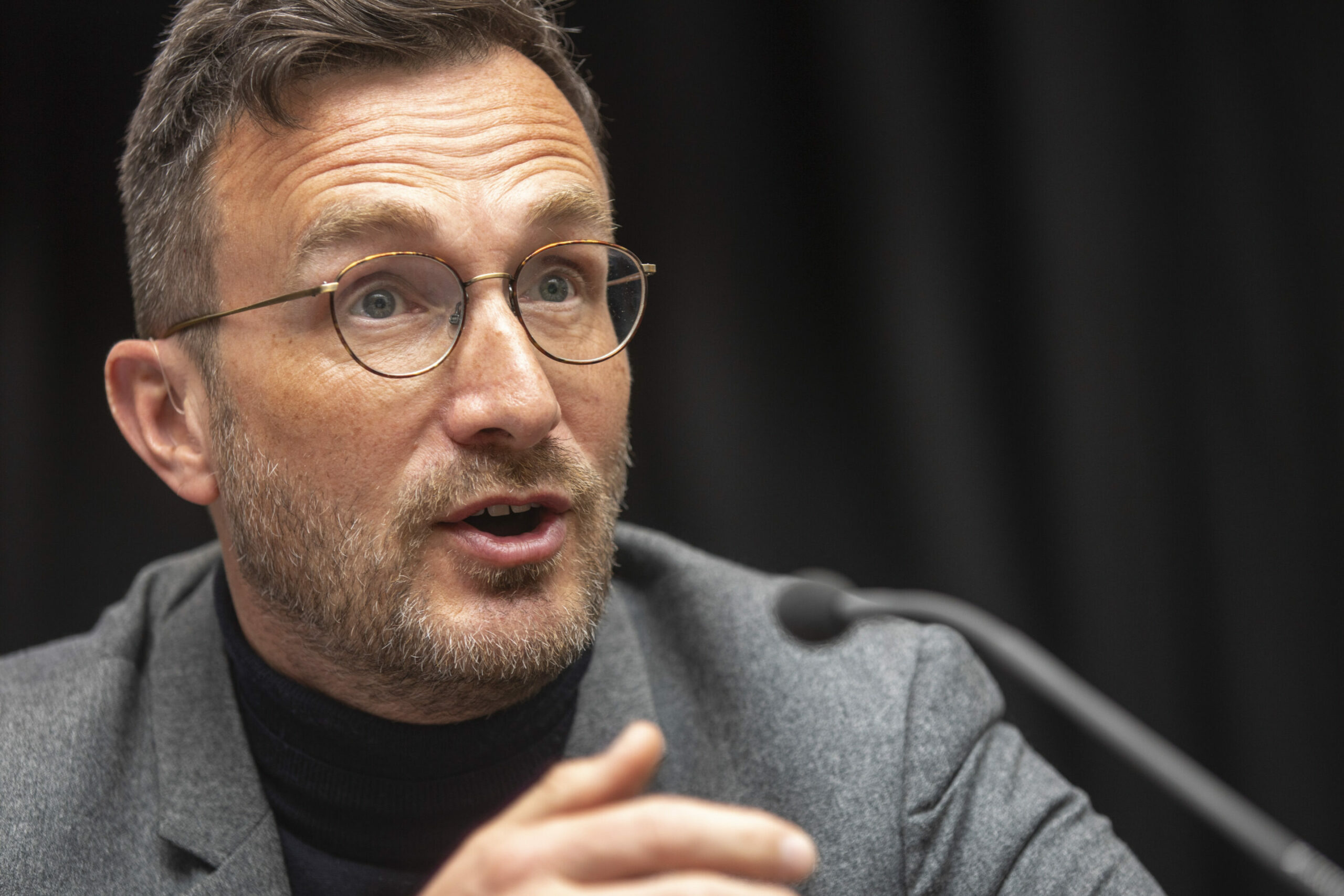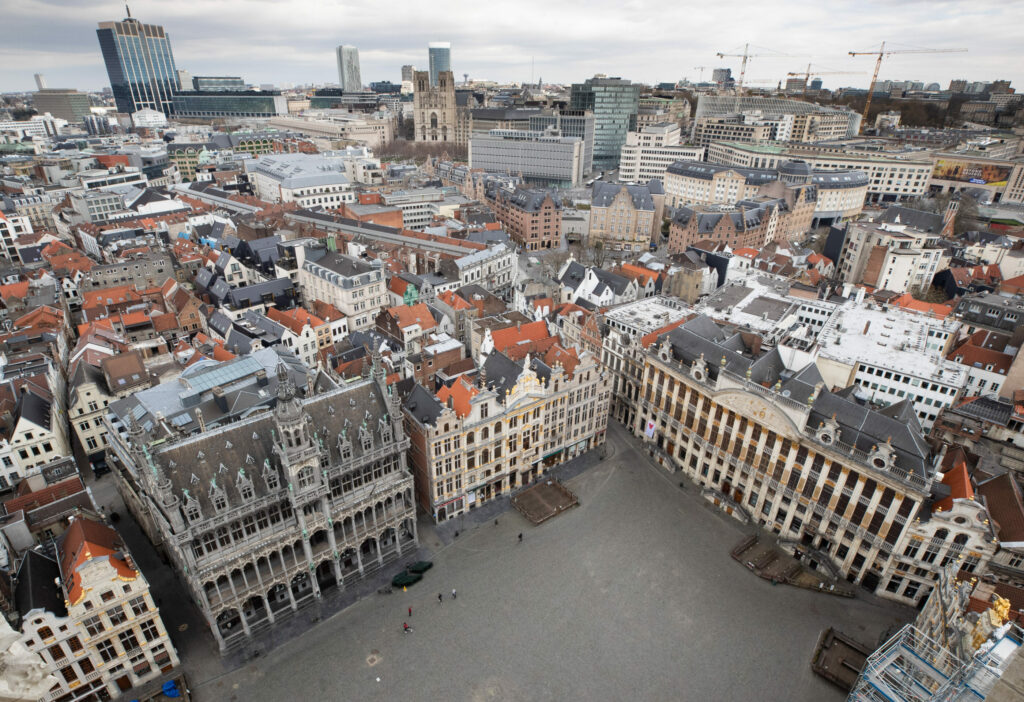Brussels MP for the Flemish socialist party Vooruit, Pascal Smet, believes Brussels should operate more like a city, less like a region – and take a leaf out of Antwerp's book.
Smet has developed a reputation in Brussels for bold urban policies while part of the Brussels-Capital Region Government, with his successor and party colleague Ans Persoons (Vooruit) since stepping up to fill his shoes.
Smet has enjoyed a larger profile than most Brussels MPs – probably for being the architect of the Good Move mobility policy, but also for not being shy of attracting controversy.
His relationship with American mobility company Uber was cited in the Uber Files, a leak which exposed the extent of their lobbying practices in Belgium – however, he was cleared of any wrongdoing by a Brussels Region parliamentary inquiry in 2023.
Yet Smet was forced to resign as Brussels State Secretary for Urbanism last June in the wake of Irangate after a political scandal broke over him inviting Iranian and Russian representatives to a Brussels conference on urbanism. He was even criticised by the European Council President Charles Michel for saying (behind closed doors) that people working in the European institutions were heavy cocaine users.
'Everything is slow in this city'
Last December, the Dutch-speaking Brussels MP became the leader of Vooruit in Brussels, where he can continue being an outspoken ambassador for the Belgian capital. He was interviewed by La Libre about his bold plans for the city.
"For the first time in 20 years, and my arrival in Brussels politics, there is momentum for change. People have the feeling that everything is slow in this city," Smet said. "They are also fed up with the impossibility of identifying who is responsible for anything."

Leader of Vooruit Brussels State Secretary Pascal Smet. Credit: Belga / Hatim Kaghat
Smet goes on to talk about the violence around Brussels-Midi and North stations, which he believes is down to a combination of drug problems and the high number of undocumented people. He even goes on to claim a part of the population is "not integrated" without clarifying his comments.
Like many in Flanders, Smet believes the budget remains the key issue in Brussels. "We're going to have to find €1.8 billion out of an €8 billion budget. Either by making cuts, or by finding new sources of revenue."
A third of the regional budget goes to civil servants, a third to the municipalities and a third to regional policies, he says. "In the Brussels Region, there are 44 civil servants per 1,000 inhabitants. In Antwerp, it's only 13," Smet continues.
When pressed on whether these ideas may be better suited to Flemish nationalists N-VA (whose leader Bart de Wever is mayor), he pushes back, saying it has nothing to do with N-VA, but is "a question of efficiency."
Radical reform of Brussels
The Flemish socialist wants to reduce and reorganise things by removing any clashing competencies. "For example, the Region and the municipalities both work on town planning. When it comes to cleanliness, it's sometimes dirtier after Brussels Cleaning than before."
In practical terms, this would mean simplifying and merging administrations such as Urban.brussels, Perspective.brussels, Bruxelles Environnement, Citydev, and la Sau.
He also wants the Brussels Minister-President (currently Rudy Vervoort) to be the mayor of all 19 Brussels municipalities, and believes having a regionalised police force would be more effective.
These kinds of administrative simplifications should be the first thing the next government should do, as regional and urban logics are different. "Much can be reorganised without even a major urban reform. The Brussels Region needs to behave more like a city and less like a region."
At the heart of the problem for Smet, is the fact that Brussels has been organised into a regional authority, on a par with Flanders and Wallonia. "The only entity that can be compared with Brussels in the Belgian context is Antwerp. Comparing Brussels with Flanders or Wallonia makes no sense."
Smet’s ideas are drastic for Brussels and strike at the heart of community tensions in the Belgian capital. He wants to merge French-speaking and Flemish commissions, as well as common ones, as well as removing the bilingual requirement of civil servants – all while still trying to preserve the linguistic rights of Dutch speakers.
"We can have unilingual services, given the state of the job market, because bilingual staff are hard to find. The aim is still to ensure that people in Brussels can be served in Dutch."
Redrawing commune boundaries
Another controversial issue discussed in the interview with La Libre is the question of municipal boundaries.
"Communal boundaries need to be redrawn,” Smet said. As an example, he cites “the problems" of Brussels-Midi station, which involves three municipalities (Anderlecht, Saint-Gilles, City of Brussels), while the European Quarter covers 4 municipalities (Saint-Josse, Etterbeek, City of Brussels, Ixelles). “The Region can decide to redraw these boundaries by ordinance,”" he continues.
Cieltje Van Achter, leader of the Flemish nationalists N-VA in Brussels, wants to turn Brussels into a city-region with arrondissements, like Paris – something the socialist politician agrees with.
"Absolutely. Like Vienna and Berlin, which are both states and cities. In its report, the OECD suggests moving towards the Antwerp model, which is also inspired by the Berlin and Vienna models."
On whether Antwerp is better managed than Brussels, he believes Antwerp is managed more efficiently, even if "Brussels is Brussels, and Antwerp is smaller. Even if they also have problems and sometimes make the wrong political choices, such as on mobility, where they are lagging behind."
Vooruit leader Pascal Smet's simultaneously pragmatic-yet-radical approach to reforming Brussels is sure to ruffle feathers. But the socialist politician has been able to identify key areas where Brussels does need change – from its administration to rigid language use.
Whether the Flemish firebrand can stay out of trouble to implement his vision for the Belgian capital, remains to be seen.

